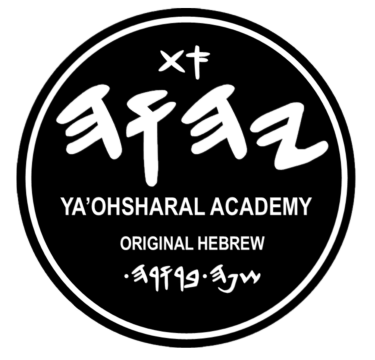The Dead Sea Scroll fragment 4Q120 dates from the 1st century BCE. It is a manuscript of the Thorah in Greek made by Ya’ohsharal priests who lived at the Dead Sea community of Qumran before it was abandoned during the war of 66-73 AD.
The fragment reads as follows:
ἐὰν δὲ ψυχὴ μία ἁμάρτῃ ἀκουσίως ἐκ τοῦ λαοῦ τῆς γῆς ἐν τῷ ποιῆσαι μίαν ἀπὸ πασῶν τῶν ἐντολῶν 👉IAΩ👈 οὐ ποιηθήσεται καὶ πλημμελήσῃ
The text is Leviticus 4:27:
“And if any one of the common people sin through ignorance, while he is doing any of the commandments of 👉YA’OH👈 something which ought not to be done, and be guilty …”
Here’s a close up of 4Q120 showing the divine name transliterated with the three Greek letters iota, alpha, and omega.
So what’s the fuss all about? This document is proof of how the divine name is supposed to be pronounced and it comes from people who actually spoke biblical Hebrew as their mother tongue. These people were not heathens. These people were Zadokite priests of Ya’ohsharal. That’s what the fuss is all about.
Dr. Martin Rosel stated:
“Obviously, the text [4Q120] preserves the divine name as it was spoken.”
Source: M. Rosel, “Names of God.” Encyclopedia of the Dead Sea Scrolls. L. Shiffman and J. C. VanderKam, eds. (Oxford: Oxford University Press, 2007), p. 416.
You can read more about Dr. Rosel and his bio at this LINK:
I conferred with Dr. Rosel via email on a related issue and that has to do with the question of the Talpiot ossuary tomb discovered in Jerusalem. The tomb pre-dates the great war with Rome between 66-73 AD. It was found in modern times by Prof. James Tabor and his team during excavations.
ack in Februaray of 2019, Prof. James Tabor asked for my opinion of the inscription that was found on the surface of the ossuary. Here’s the high resolution picture he sent me to examine along with my brief comments.
What you are looking at are four lines of Greek text left by a family member of the deceased occupant of the ossuary tomb. Yes, I know its Greek, but Greek was one of the languages our people spoke back then, just like we are speaking English today. So try not to let this distract you from the fact that the inscription was not made by a heathen. The Talpiot tombs were owned by our people. Here are the four lines transliterated into the Latin script.
1. DIOS (vocative)
2. IA | O (deity name)
3. UPSO (verb)
4. AGB (personal name)
The inscription is a very brief prayer on behalf of the deceased, whose name was Hagab, that he be raised up to life again on the day of the resurrection.
The million dollar question, however, is the word on the second line which is clearly a deity name. In my comments to Prof. Tabor above, I am basically telling him that his very first inclination to pronounce this word as YA-OH was correct. The first two letters are iota and alpha, clear as day. The last letter is omicron, clear as day. Prof. Tabor went and obtained a second opinion from another scholar who happened to be in Jerusalem at that time, Prof. James Charlesworth. When Prof. James Charlesworth was shown the inscription, he immediately and without the slightest hesitation said this word is to be pronounced YA-OH. He did this without being coached by anyone on Tabor’s team beforehand. Watch the video clip below.
But Prof. Tabor later changed his mind and came to the conclusion that the four Greek signs represent the four Hebrew letters of the divine name, and so the third sign must represent the Hebrew letter “W” despite the fact that every other letter in the inscription is Greek!

In March of 2019, when I conferred with Dr. Rosel about this, he asked me what I thought the inscription on the Talpiot ossuary could mean. I told him it reads:
“Oh divine YA’OH raise up Hagab”.
I explained to Dr. Rosel what I had relayed to Prof. Tabor about the third sign in the second row of the inscription being a divider. His reply was: “very interesting indeed”.
The Talpiot ossuary inscription might be in Greek, just like the Dead Sea Scroll 4Q120 is in Greek, but they were NOT made by heathen hands. The views expressed in them, the beliefs, and most importantly, THE HOLY NAME of the deity mentioned in them, are not Greek at all.
His name is YA’OH
Always has been. Always will be.

Chabod la-YA’OH
All honor to YA’OH